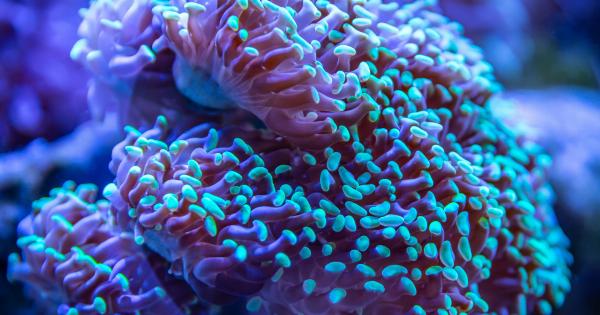Dehydration is a condition that occurs when the body loses more fluids than it takes in. It can have serious consequences on the overall health and well-being of a person.
In order to better understand dehydration and its effects, it can be helpful to examine images that illustrate the various signs and symptoms associated with this condition. Through these images, we can gain valuable insights into the importance of staying well-hydrated and the potential dangers of dehydration.
1. The Importance of Water
Water is an essential component of our bodies and plays a vital role in maintaining overall health. This image highlights the importance of water and emphasizes the need to consume an adequate amount of fluids throughout the day.
It serves as a reminder that proper hydration is crucial for optimal bodily functions.
2. Signs of Dehydration
This image depicts the common signs of dehydration, including dry mouth, increased thirst, and dark urine.
These visual cues can help individuals recognize the initial symptoms of dehydration and take appropriate measures to replenish their fluid levels.
3. Effects on the Skin
Dehydration can have noticeable effects on the skin. This image showcases the impact of dehydration on skin elasticity, resulting in dryness and the formation of wrinkles.
It serves as a visual reminder of the importance of maintaining adequate hydration for healthy and youthful-looking skin.
4. Impact on Cognitive Function
Dehydration can also affect cognitive function and impair mental clarity. This image portrays the potential consequences of dehydration on cognitive abilities, such as difficulty concentrating, memory problems, and decreased alertness.
It reminds us that staying hydrated is not only important for physical health but also for optimal mental performance.
5. Physical Fatigue and Weakness
When the body is dehydrated, it can lead to physical fatigue and weakness.
This image showcases the impact of dehydration on muscle function, highlighting the importance of staying adequately hydrated to maintain strength and endurance for daily activities and exercise.
6. Kidney Function and Dehydration
Dehydration can adversely affect kidney function and lead to complications such as kidney stones.
This image demonstrates the impact of dehydration on the kidneys and emphasizes the importance of maintaining proper fluid balance to support the optimal functioning of this vital organ.
7. Symptoms in Children and Infants
Dehydration can be particularly concerning in children and infants. This image illustrates the specific signs of dehydration in young ones, including a dry mouth, irritability, sunken eyes, and decreased urine output.
It highlights the importance of closely monitoring the hydration status of children and seeking medical attention if necessary.
8. Dehydration in Sports
Athletes and individuals engaging in physical activities are at a higher risk of dehydration. This image depicts the impact of dehydration on athletic performance and the potential risks associated with exercising without adequate hydration.
It serves as a reminder for athletes to prioritize fluid intake before, during, and after physical exertion.
9. Severe Dehydration and Medical Emergencies
In severe cases, dehydration can lead to medical emergencies and life-threatening complications. This image portrays the symptoms of severe dehydration, including dizziness, rapid heartbeat, confusion, and fainting.
It serves as a visual warning to seek immediate medical assistance when experiencing severe dehydration symptoms.
10. Staying Hydrated: Prevention and Treatment
This image emphasizes the importance of prevention and treatment strategies to stay hydrated.
It highlights practical tips such as drinking water regularly, consuming water-rich foods, using fluids as part of a balanced diet, and recognizing the signs of dehydration. It encourages individuals to take proactive steps in maintaining optimal hydration levels for better health.































